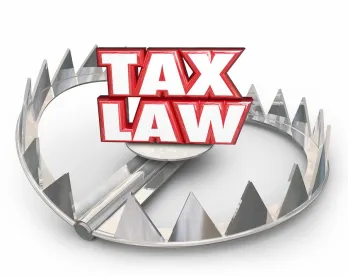Courts continue to strike down the Internal Revenue Service (IRS) as it continues to test the bounds of the attorney-client privilege and work product doctrine through the issuance of improper summonses. In the last several years, the IRS has filed numerous summons enforcement proceedings related to the production of documents generally protected by the attorney-client privilege, tax-practitioner privilege, and/or work product doctrine. These summonses include overt requests for “tax advice” and “tax analysis,” which several courts have refused to enforce. For example, see Schaeffler v. United States, 806 F.3d 34 (2d Cir. 2015).
Once again, in United States v. Micro Cap KY Insurance Co., Inc. (Eastern District of Kentucky), a federal district court rejected the IRS’s arguments and refused to enforce an inappropriate summons. The IRS filed this enforcement proceeding seeking to compel the production of confidential communications between taxpayers and the lawyers that assisted them in forming a captive insurance company. After conducting an in camera review (where the judge privately reviewed the documents without admitting them in the record), the judge found the taxpayers had properly invoked privilege since each document “predominately involve[d] legal advice within the retention of [] counsel.”
The court also rejected the government’s argument that the attorney-client privilege was waived by raising a reasonable cause and reliance on counsel defense to penalties in the taxpayers’ case filed in Tax Court. Because the government’s argument was untimely, it was waived and rejected outright. The court, however, proceeded to explain how the argument also failed on its merits.
The court reasoned that the mere assertion of the defense in a pleading does not automatically lead to a waiver or to the disclosure of privileged documents since there may be other reasons that disclosure does not result. For example, production would not be compelled if the taxpayers later abandoned the reasonable cause defense. Regardless, the court ultimately refused to enforce the summons because it required the court to make predictions about what may result in the Tax Court proceedings. Any potential outcome in the Tax Court proceedings did not warrant production in this court.
Practice Point: The IRS continues to take aggressive positions concerning privilege and work product protections in tax audits. Although a timely response to a summons is important, an IRS summons is not self-enforcing. Taxpayers generally should not concede a privilege dispute simply because the IRS has issued a summons. If the IRS and the taxpayer’s counsel cannot independently resolve their differences about the invocation of privilege, a US District Court may need to adjudicate the issue in a privilege proceeding. Taxpayers should consult their tax counsel to understand their rights and defenses to a summons prior to disclosure of potentially privileged documents.




 />i
/>i


